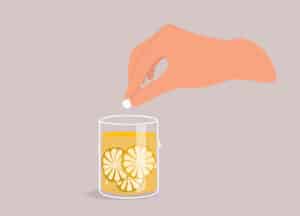
Illinois Treatment Center

Narcotics Anonymous is based on spiritual principles. Members use their own spirituality and belief in a higher power to help...

Why Do Stimulants Calm Me Down?
When you consume a drink that has caffeine, you assume that it will cause you to become restless and hyper....

Symptoms of Being Roofied
Are you concerned about being roofied while you’re out enjoying drinks with friends? Roofies are also known as date rape...

M365 Pill
As a combination pill containing both hydrocodone and acetaminophen, the M365 pill is a powerful analgesic prescription medication for moderate-to-severe...

L484 Pill
The L484 pill contains acetaminophen and is an extra-strength medication. Each pill has 500 mg of acetaminophen. The Kroger Company...

Buprenorphine/Naloxone Side Effects
Are you considering starting a treatment program for your opioid use disorder that involves taking SUBOXONE®? SUBOXONE® is a medication...

Does Taking Naltrexone for Weight Loss Work?
For many years, naltrexone has been one of the most effective medications for managing substance use disorders. This non-addictive substance...

Substances That Change the Central Nervous System, Including Prescription Drugs
The central nervous system acts as the body’s “internet,” sending, receiving, and processing signals in response to stimuli both inside...

Dangers of Nodding Out on Heroin and Opiates
The opioid crisis has resulted in more than three-quarters of drug overdose deaths being opioid-related. Meanwhile, in the 10 years...

Afrin Addiction
Afrin, also known as oxymetazoline, is a decongestant spray that is intended only for short-term usage. Unfortunately, when people use...
Real Reviews from Real Clients
At Illinois Recovery Center, prioritizing client care is our utmost concern. As you enter our facility, expect a heartfelt greeting from each member of our staff! We are committed to providing outstanding addiction treatment services and cultivating a supportive atmosphere conducive to sustained recovery. But don't just take our word for it... read what our clients have to say!



